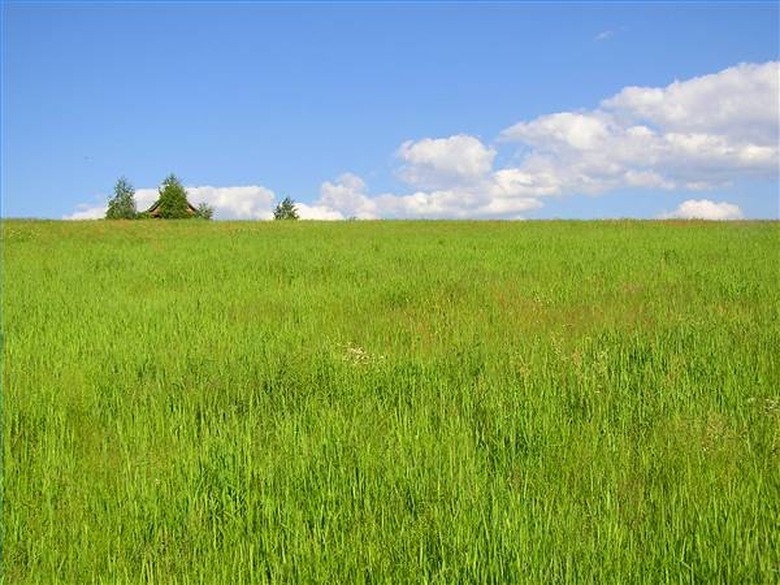How Long Does Bermuda Grass Take To Grow?
Bermuda grass, also known as the "South's grass," is a thick, lush grass great for lawns, ground covers and other gardening uses. Bermuda grass is a perennial grass found in theme and amusement parks, golf courses and gardens. Bermuda grass grows best in an area with a mild climate, like southern and southwestern United States. Bermuda grass is a strong, resilient grass that is very difficult to get rid of once it is planted, so make sure you are only planting Bermuda grass where you actually want it.
History
Bermuda grass originated in Africa and was brought to America in the 1500s by Spanish travelers. The scientific name for Bermuda grass is Cynodon dactylon, but it is also known as Bahama grass, Dubo, Scutch grass, Dog's Tooth grass, Devil's grass, Couch grass, Indian Doab and Grama. Although Bermuda Grass did not originate in Bermuda, it is named for its great abundance in Bermuda. Bermuda grass is not native to Bermuda but is an invasive species.
- Bermuda grass, also known as the "South's grass," is a thick, lush grass great for lawns, ground covers and other gardening uses.
Significance
Bermuda grass has short, grayish-green blades and sharp edges. In many locations, Bermuda grass can grow in many different soils and can grow year round if planted densely. Because Bermuda grass enjoys full sun and can withstand heavy foot traffic, it is a great grass to use for golf courses and other sports fields. Hybrid versions of Bermuda grass include Midfield, FloraDwarf, Champion, Midlawn, Tiffine, Tifgreen and Tifdwarf.
Time Frame
Bermuda grass usually sprouts between three days to a week from planting, but it will take about 10 weeks for the lawn to look lush. If your planting conditions are not ideal, it may take even longer to create a useable lawn. If you are planting your Bermuda grass in late spring or early summer, look forward to seeing your grass appear more quickly. If you are planting during a different time, the grass may take more than six weeks to sprout or may not sprout at all.
- Bermuda grass has short, grayish-green blades and sharp edges.
- Because Bermuda grass enjoys full sun and can withstand heavy foot traffic, it is a great grass to use for golf courses and other sports fields.
Geography
Bermuda grass does not do well in cold temperatures, so if you live in a climate that has harsh winters, you should not plant Bermuda grass. Unlike many grasses, Bermuda grass is not affected by salt, so growing Bermuda grass in beachy areas is recommended because it is so hardy. If you are not sure whether or not your area is a good location for Bermuda grass, contact a landscaper or garden expert in your area.
Considerations
If you have a lot of shade in the location you would like to grow Bermuda grass, you may want to reconsider your options. Bermuda grass grows very well in sunny, bright areas but may thin out or brown in shady areas. If you are planning to plant Bermuda grass on a lawn with many trees, you may want to choose to plant a grass that is more tolerant to shade.
